- Home
- Chris Ryan
Hit List Page 7
Hit List Read online
Page 7
‘I never could resist a good book.’
With the clothes-shopping completed they had lunch in a pub in Beauchamp Place, where Rushdie questioned Slater about the Gulf War. ‘What was your worst moment?’ he asked.
Slater considered. ‘Well, the most frightening moment was probably during an anti-Scud mission.’
‘Go on,’ said the novelist, forking Branston pickle on to his cheese roll.
Slater sipped at his Coke. ‘Well, we’d got satellite pictures in, showing activity near a place called al-Anbar, west of Baghdad. The theory from the intelligence people was that a number of missiles were being grouped there before moving them on to their mobile launchers. They didn’t know how long they’d all be in one place, so the word was we had to check them out fast and if possible help knock them out.
‘Four of us went in. They dropped us off by helicopter at night and got out as quickly as possible. Al-Anbar was surrounded by anti-aircraft batteries, there were tanks in the area, and there were rumours of a concealed airbase. It was also fantastically cold. We’d been expecting the Costa del Sol, but we found the coldest January for thirty years. Snow was expected and the wind-chill was murderous.
‘We moved up on the target. Air-reconnaissance pictures had shown there was a small berm – a kind of banked-up dugout – a couple of hundred yards from where we thought the Scuds were, and the theory was that this was for the ground-crew to shelter behind when the missiles were fired. It was a risk, but we decided to make the berm our observation post.
‘It took a lot longer than we thought. We knew from prisoners we’d interrogated that all the sentries would have night sights, so we couldn’t take any chances. The trouble was there was no cover, just bare rock, and we were like flies on a table-top. In the end we made it to the berm about an hour before dawn, and at that point it began to pour with rain. By then, though, we’d been able to confirm via our own night sights that there were definitely Scuds on the base. They were well concealed, but they were there.
‘I radioed through the confirmation to the base in Saudi and we were ordered to sit tight. The air attack would come after dark that night. Between now and then we were to dig in and observe any movement.
‘It got light. The Scuds and the trucks had been netted up for the day and were pretty much invisible. The only sign of life was two low, camouflaged tents which we guessed housed the missile and anti-aircraft crews. So we just hunkered down in the berm with one man on stag and the rest trying to sleep. There was nothing else to do. If any sentries had come along we’d have been dead, but none did, and gradually we got a bit of warmth back in our bones. By eleven o’clock we were beginning to think we might even make it through to nightfall. And then everything changed.
‘I was on stag. There had been no movement for an hour. And then, on the horizon, I saw a dust-trail. It was moving towards us, and soon I could make out a pair of Panhard landcruisers. Landcruisers usually meant someone important, and twenty-four hours earlier the intelligence people in Saudi had intercepted a message announcing that the al-Anbar base was due to be visited by some high-up code-named Marwan. No one was quite sure of Marwan’s identity, but the popular theory was that he was an Iranian scientist who had defected during the Iran-Iraq war and was now running the missile research plant at Sa’d 16, up in the north. If this theory was right then he was a real prize: it was the Sa’d 16 team who had designed the al-Husayn – the long-range version of the Soviet Scud that you could fit with chemical and biological weapons.
‘And then I saw that the dust-trail was more than a couple of visiting high-ups in landcruisers. Behind them, over the horizon came this vast convoy of T-55 tanks. They were heading straight for us, and there wasn’t a thing we could do about it except cover ourselves with stones and dirt and camouflage netting and hope they didn’t notice us. I was the last to get under cover and I’ve never seen anything more terrifying than those T-55s. They looked like monsters – old and black and pitted with shell-scars. The whole desert was roaring and grinding, and all that we could do was lie there – I had my head jammed up against one of the other guys’ arses – and hope that they kept moving. But they didn’t. They clanked to a halt, in formation, all around us. We could hear them opening their turrets and we could hear their radios, and eventually we could hear their voices. And then a couple of them came over and I thought well, that’s it. We’re dead. And then they pissed on us. I felt it running down my neck. They must have thought the berm was some kind of rubbish tip where they threw the old cam-netting. We were there, not moving a hair, for four hours, and I can’t even begin to describe to you what that was like, or what that kind of fear does to you.’
Slater returned to the present to find Rushdie watching him.
‘You see, you’re looking at me right now – you know how the story ends. In that berm we didn’t know how the story was going to end. There had been stories about spies being stoned to death, castrated, hung from wire nooses . . . you name it.’
‘So what happened?’
‘They went away. They started up their engines, locked down their hatches and went away. I radioed in a report about the tanks on my handset and we stayed there, not moving, for another three hours. The air-strike came in just before midnight, and boy, was it good to see that Scud jet-propellant blow!’
‘And Marwan?’ asked Rushdie. ‘Did you ever identify him?’
‘No one survived the attack,’ said Slater. ‘That was one of the things my team had been tasked to ensure.’
There was a long silence.
‘How is it to know that you’ve killed someone?’ asked the novelist. ‘If you don’t mind my asking.’
‘How’s that ploughman’s lunch?’ asked Slater.
The football went well. The stands tickets gave a good view of Tottenham beating West Ham two-nil, and Rushdie took notes assiduously throughout in a small, leather-covered book.
After the game, rather than look for a taxi, Rushdie suggested they might walk down the High Road to Seven Sisters tube station, as most of the fans did whenever Spurs played at home. To begin with they were swept along by a crowd of cheering, chanting Spurs fans. The air was heavy with fried food and beery good humour. The grey skies promised snow.
At intervals Rushdie stopped to note his impressions, glancing around him as he did so. This began to worry Slater: the writer was less likely to be recognised in Haringey than in Knightsbridge but his actions closely resembled those of a policeman and might easily be construed as hostile. He seemed impervious, however, to the stares he prompted.
‘I think it might be an idea to keep going,’ Slater said, when Rushdie indicated that, yet again, they should stop for a moment. The faces around them were those of West Ham supporters now, and their mood was visibly less benevolent than that of the victorious Spurs crowd.
‘I’m a writer,’ said Rushdie simply. ‘And right now I have to write.’
‘Can you wait until we get to that bus stop?’ Slater asked.
But as they sat down, they found themselves surrounded.
‘Know me again, would you?’ asked an acned fatboy in a Hammers shirt.
Rushdie said nothing, but watched with detached interest as the group solidified around him. Slater, hoping that the situation would defuse of its own accord, remained silent.
‘You deaf or sump’ink?’ asked the fatboy.
Slater flickered a glance at the group. There were three talkers, he reckoned, and three fighters. The one to watch was the heavy guy at the back, who was even now flexing and curling his fingers.
‘An’ what’s your fuckin’ problem, wanker?’ demanded the fatboy, sniffing.
Here we go, thought Slater. On the seat beside him Rushdie patiently studied his hands.
‘I’m talking to you, cunt!’
‘Are you going to let us carry on our way?’ asked Slater mildly.
‘You don’t get it, do you pal?’ It was the heavy guy at the back. His naturally ugly appearance had not
been improved by the spider’s-web tattoo across his neck. Like the fatboy, his eyes were puffy and his nose ran.
They were all, Slater guessed, completely hot-wired on coke. They weren’t about to walk away — they wanted a positive result to counterbalance the defeat at White Hart Lane.
‘Is this a money thing?’ asked Rushdie, speaking for the first time. ‘Or just a football thing?’
His voice was steady. Slater was amazed at his composure.
‘It’s basically a stupidity thing,’ answered Slater evenly. ‘What we have here is a bunch of not-very-clever boys who’ve taken too many drugs.’
The taunt had the desired effect. Spider’s-web, his eyes narrowing, took an angry step forward and drew back his fist.
But Slater was already rising to his feet. His first punch hammered into his attacker’s lower ribcage, his second – as the thug doubled up – flattened his nose. Each blow was accompanied by the crack of fracturing bone.
Bloody drool running down his chin, Spider’s-web sank to his knees.
‘How about you?’ Slater addressed the fatboy reasonably. ‘Ready to put your money where your mouth is?’
The fatboy stared open-mouthed at the twitching figure at his feet. The other four took a step backwards.
‘There’s a hospital back there,’ Slater continued. ‘You’ll probably want to get this ape to the casualty entrance. He’ll have a broken nose and two fractured ribs. We’ll be on our way.’
‘Was there any other possible conclusion to that sequence?’ Rushdie asked five minutes later as they descended the steps of Seven Sisters tube station.
‘Not really,’ said Slater. ‘There comes a point from which, for certain people like that guy with the tattooed neck, retreat becomes physically impossible. You can see them flooding with adrenaline before your eyes. And at that point you have to fight or flee. Personally I’d rather flee, given the choice, but I suspect on that occasion we wouldn’t have made it.’
‘My four-minute mile days are behind me,’ admitted Rushdie. ‘Are you all right?’
‘I could use a cup of tea,’ admitted Slater. ‘And I expect you’d like to write the whole thing up.’
FOUR
‘Neil, be a darling and carry the bags, would you?’
‘Certainly,’ said Neil Slater. So far there were nine of them: two from Versace, three from Donna Karan, and four from Miu-Miu. Grace Litvinoff – and she was the first to admit it – liked to shop.
‘Chanel, Neil!’
‘Certainly, Mrs Litvinoff.’
‘I don’t need to tell you the way there do I?’
‘Not any more, Mrs Litvinoff.’
And she didn’t. He knew all her favourite places. And what was more, they all knew him. Grace Litvinoff had been in London for ten days now, and for most of those he had trailed her up and down Bond Street, Sloane Street, Mount Street, Brook Street, and all the other Streets where it was possible to spend a thousand pounds on a hallmarked scrap of silken or cashmere nothingness.
Now, when he followed her into one of those cool, perfumed establishments the impeccably groomed male and female staff nodded to him, smiled hello to him, and in a couple of cases stared with open and amused longing at his groin.
For Slater was not the raw provincial he had been two months earlier. He now looked as if he belonged in Prada or Fendi or Gucci or wherever whimsy and greed led his mostly female clients. His haircut had cost twice the price of a tank of petrol, the labels on his clothes were Italian, and he knew the menus at the Met Bar and Le Caprice off by heart.
On the down-side was the question of his own status. They knew him at all the metropolitan watering-holes, but they knew what he did too. They knew that he was being paid to fetch and carry and look out for trouble. And while it was one thing squiring a beautiful and glamorous woman like Grace Litvinoff round the West End, it was quite another running errands for some loudmouthed gangster’s wife – or worse, some loudmouthed gangster’s children, as he’d been called on to do once or twice. Andreas had been right – bodyguarding was a service industry.
But having said that, he was good at it. Since the incident with Salman Rushdie there had not been a hint of trouble. He had learnt an operating style which combined social deference with professional authority and had managed to retain most – if not quite all – of his self-respect in the process. Duckworth was pleased with him, and had said so.
It was a clear spring day, and the starlings were singing in the plane trees as Slater followed Grace Litvinoff into Chanel. According to her passport, which he had seen in the Litvinoffs’ Mayfair apartment, Grace was thirty-four and had been born in Singapore. Her husband, whom Duckworth approvingly described as ‘stupendously rich’, bought and sold communications companies.
David Litvinoff was some fifteen years his wife’s senior, and the story went that he had been making a business stopover in Singapore in the mid-eighties when a colleague had persuaded him to visit one of the island’s shirtmakers. The fitting had taken place in the morning in one of the myriad ‘shop-houses’ behind Raffles Hotel, and the half-dozen completed garments were delivered to Litvinoff’s room at the end of the afternoon.
They were delivered by the shirtmaker’s eighteen-year-old daughter, a girl fashioned by chance and genetic accident into a creature of extraordinary beauty. Like many Singaporeans she was slender and ivory-skinned, but unlike any Singaporean that David Litvinoff had ever seen her eyes were a dazzling tropical green. As soon as she walked into his hotel room the young New Yorker – already many times a millionaire – felt himself drowning in her gaze. They were married three months later.
Marrying Grace, it was said, was the first and last impulsive thing David Litvinoff had ever done. At his preliminary interview for the position of bodyguard, Slater had been struck by the man’s remoteness. Litvinoff had barely spoken, raising his eyes from his paperwork for no more than a few seconds at a time and indicating his final approval of Slater with a nod. What he and his wife had ever had in common was hard to imagine.
For the Singapore shirtmaker’s daughter had become one of the international set’s most dazzling and extrovert stars. As a child she had seen glamour at a distance – now she wanted it for herself. And she got it. She spent her husband’s money with reckless panache – buying art in Manhattan, enlightenment in Tibet, haute couture in Paris, and holiday homes in St Kitts and Aspen. She was a particular darling of the fashion houses, for unlike ninety-nine per cent of the face-lifted harpies who occupied front-row seats at the shows, Grace Litvinoff was beautiful. The waist-length curtain of raven-black hair had been replaced by a chic little bob and the long green eyes were perhaps a little more knowing than they had been when her husband had first encountered them sixteen years ago, but otherwise time had stood still. Her skin was still as delicate as the petal of an orchid, while her body – toned and streamlined by hundreds if not thousands of hours of gym workouts, yoga, tai-chi, hydrotherapy and deep-tissue massage, was as lithe as a panther’s.
For twenty minutes, as she tried on outfit after outfit, Slater watched the shop’s Bond Street entrance from a well-stuffed chair. Where, he wondered vaguely, would they be lunching today? Earlier in the week they’d visited the Mirabelle, and Marco Pierre White had joined them at their table.
From the far end of the shop, by the changing rooms, came the sound of female giggles.
‘Neil, darling,’ came Grace Litvinoff’s mid-Atlantic drawl. ‘We need you!’
Leaving the nine shopping bags by the counter he hurried over. His employer’s sleek, elegantly-coiffed head protruded from one of the changing-rooms. Two assistants in gilt-buttoned suits stood on either side of the door. There was an air of stifled hysteria.
‘We need a decision, Neil. For the reception tonight do I go with . . .’
She stepped out wearing a sheer, barely existent silk top over an embroidered lace brassiere.
‘Or do I go without?’
She reappeared without t
he bra.
For a long moment he gaped at her, stared at the small, dark-pointed breasts trembling beneath the silk.
‘Well, Neil? What do you think?’
The two assistants were smiling at him, enjoying his discomfort.
‘I’m . . . I’m not sure,’ he managed, looking away.
‘I think Neil disapproves of me,’ Grace Litvinoff cooed. ‘I guess the decision will have to wait. Perhaps I’ll wait and see how I feel.’
There had always been an edge of flirtatiousness in her dealings with Slater, but she had never, he thought, quite crossed the line like this before. God, but she was sexy though, with those lazy green eyes and that sly, spoilt mouth. And, of course, those edible little breasts. Wondering about the rest of her, imagining her nude – imagining her arching beneath him and murmuring his name – he felt himself harden.
And turned to the door of the shop. Get a grip, he told himself angrily. Get a fucking grip. He’d lost it then – dropped his guard and his concentration one hundred per cent.
‘Am I very naughty?’ she asked him, passing him the bag containing the silk top – so light it felt empty. ‘Are you very cross with me?’
‘I’m here to guard you, Mrs Litvinoff,’ he replied carefully.
‘Someone to watch over me . . . Do you know that song, Neil?’
‘I’m afraid not, Mrs Litvinoff. Would you like me to take the bags to the car, or would you like to go on somewhere else?’
‘I thought Valentino, perhaps. And then lunch.’
What was it, wondered Neil Slater, looking around the minimalist white-on-white dining room, that linked all these people? Why did they all look as if they knew each other – as if they belonged here by right? And why – Italian loafers or no Italian loafers – didn’t he feel that way? Why did he always feel the outsider?
Perhaps it was that sense of outsidership – that sense that life’s rules don’t quite apply – that had linked them all in the Regiment. That was what had been missing from his life since leaving the army, he thought – the sheer satisfaction of bending the rules. As a Bolingbroke’s employee, and now as Duckworth’s man, there was no such satisfaction to be had, no such privilege to be enjoyed.

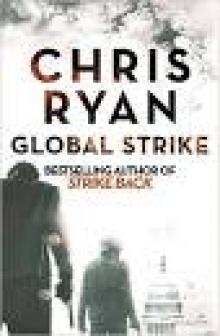 Global Strike
Global Strike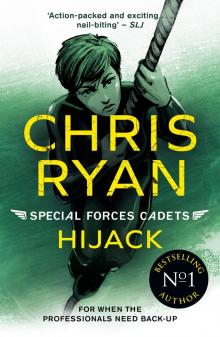 Hijack
Hijack Special Forces Cadets 2
Special Forces Cadets 2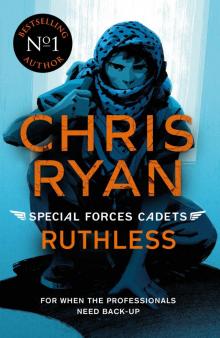 Ruthless
Ruthless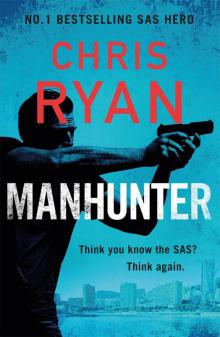 Manhunter
Manhunter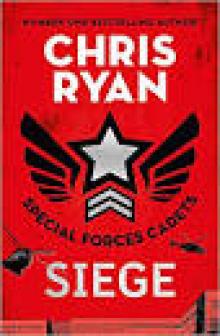 Special Forces Cadets 1
Special Forces Cadets 1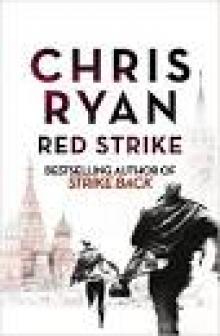 Red Strike
Red Strike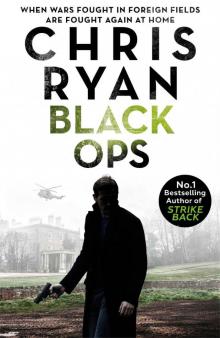 Black Ops
Black Ops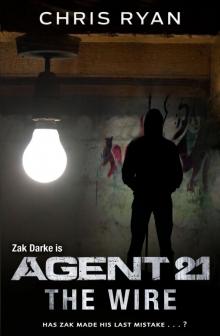 Agent 21: The Wire
Agent 21: The Wire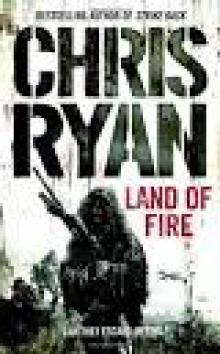 Land of Fire
Land of Fire Alpha Force: Fault Line
Alpha Force: Fault Line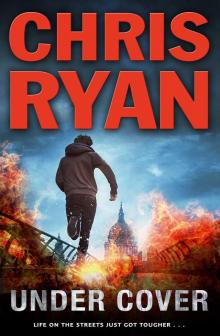 Under Cover (Agent 21)
Under Cover (Agent 21)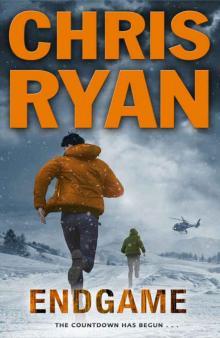 Endgame (Agent 21)
Endgame (Agent 21) Red Centre
Red Centre Blackout
Blackout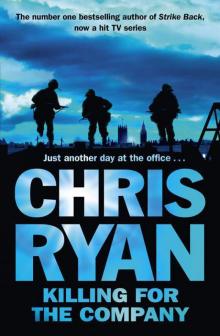 Killing for the Company
Killing for the Company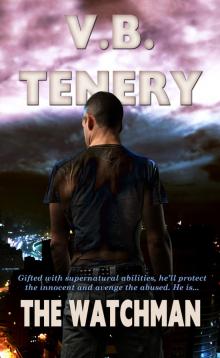 The Watchman
The Watchman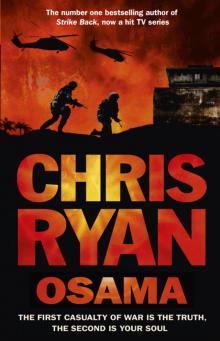 Osama
Osama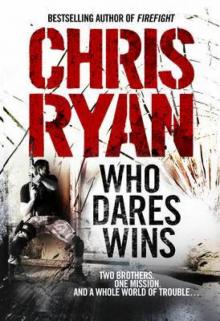 Who Dares Wins
Who Dares Wins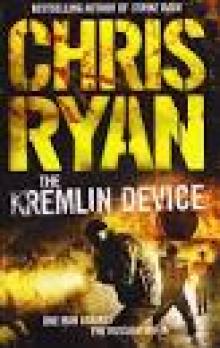 The Kremlin Device
The Kremlin Device Hunter Killer
Hunter Killer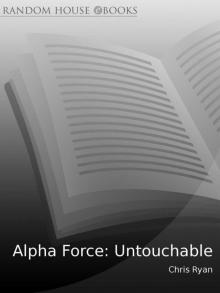 Alpha Force: Untouchable
Alpha Force: Untouchable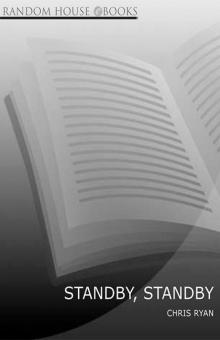 Stand By Stand By
Stand By Stand By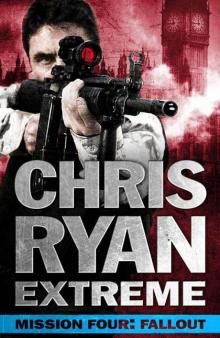 Chris Ryan Extreme: Hard Target: Mission Four: Fallout
Chris Ryan Extreme: Hard Target: Mission Four: Fallout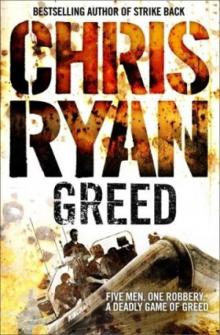 Greed mb-1
Greed mb-1 Alpha Force: Desert Pursuit
Alpha Force: Desert Pursuit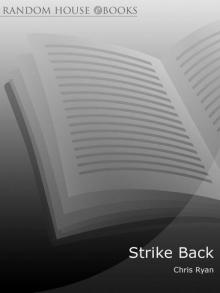 Strike Back
Strike Back Greed
Greed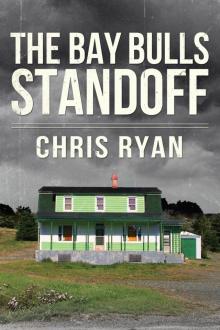 The Bay Bulls Standoff
The Bay Bulls Standoff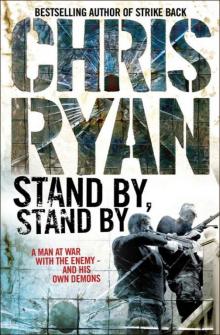 Stand By, Stand By gs-1
Stand By, Stand By gs-1 Outbreak
Outbreak Hunted
Hunted Vortex cr-4
Vortex cr-4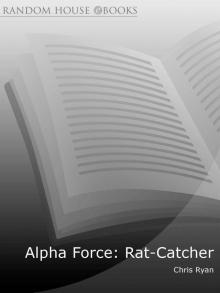 Rat-Catcher
Rat-Catcher Vortex
Vortex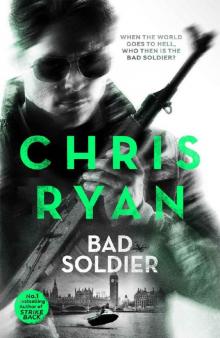 Bad Soldier
Bad Soldier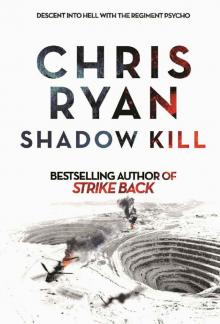 Shadow Kill: A Strikeback Novel
Shadow Kill: A Strikeback Novel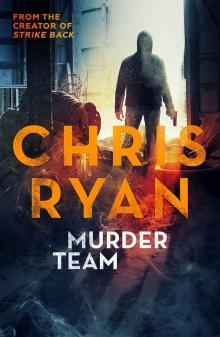 Murder Team (Kindle Single)
Murder Team (Kindle Single) One Good Turn
One Good Turn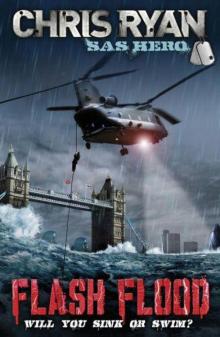 Flash Flood cr-1
Flash Flood cr-1 Night Strike
Night Strike Wildfire
Wildfire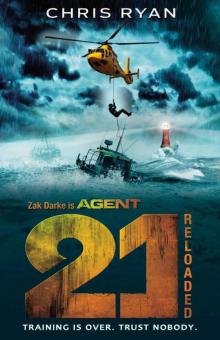 Agent 21: Reloaded: Book 2
Agent 21: Reloaded: Book 2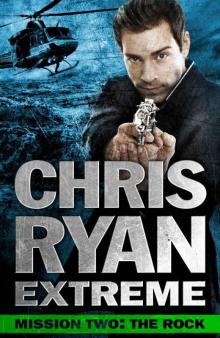 Chris Ryan Extreme: Hard Target: Mission Two: The Rock
Chris Ryan Extreme: Hard Target: Mission Two: The Rock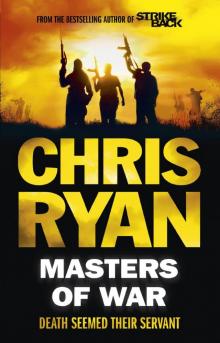 Masters of War
Masters of War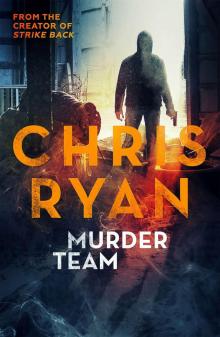 Murder Team
Murder Team War Dog
War Dog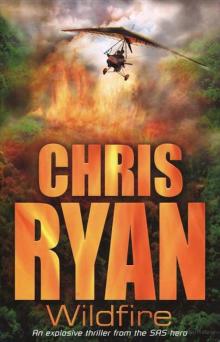 Wildfire cr-2
Wildfire cr-2 Survival
Survival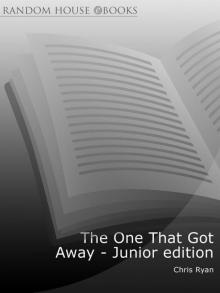 The One That Got Away - Junior edition
The One That Got Away - Junior edition The Hit List
The Hit List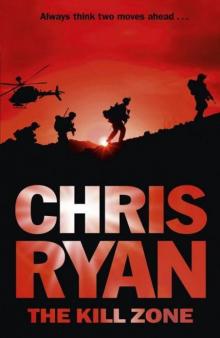 The Kill Zone
The Kill Zone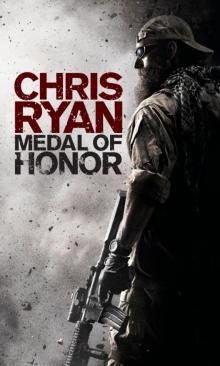 Medal of Honor
Medal of Honor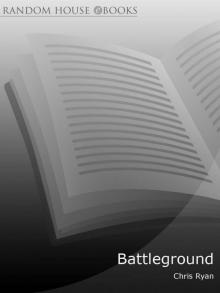 Battleground
Battleground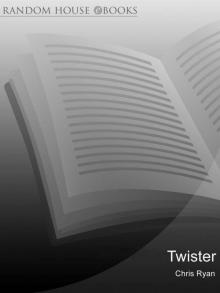 Twister
Twister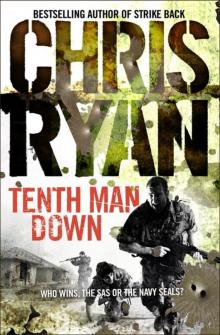 Tenth Man Down gs-4
Tenth Man Down gs-4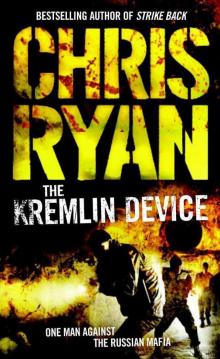 The Kremlin Device gs-3
The Kremlin Device gs-3 Hostage
Hostage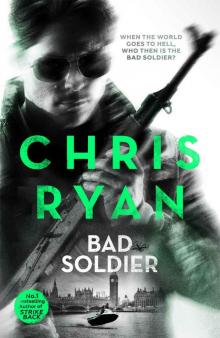 Bad Soldier: Danny Black Thriller 4
Bad Soldier: Danny Black Thriller 4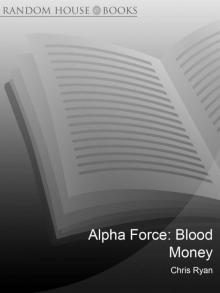 Alpha Force: Blood Money
Alpha Force: Blood Money Firefight
Firefight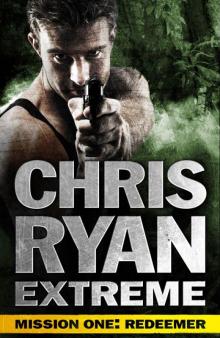 Chris Ryan Extreme: Hard Target: Mission One: Redeemer
Chris Ryan Extreme: Hard Target: Mission One: Redeemer Hit List
Hit List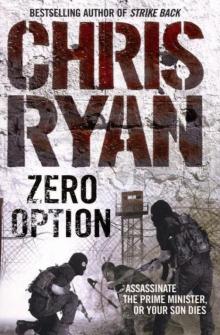 Zero Option gs-2
Zero Option gs-2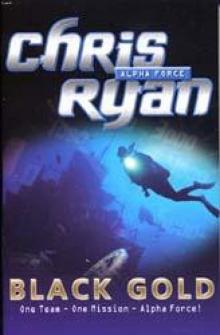 Black Gold
Black Gold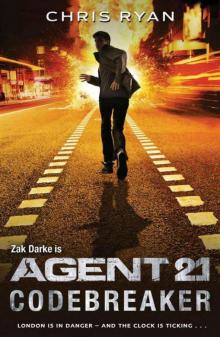 Agent 21: Codebreaker: Book 3
Agent 21: Codebreaker: Book 3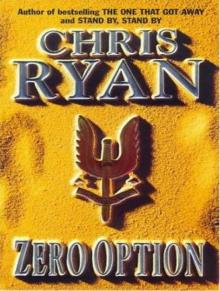 Zero Option
Zero Option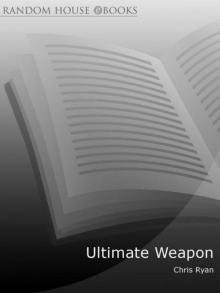 Ultimate Weapon
Ultimate Weapon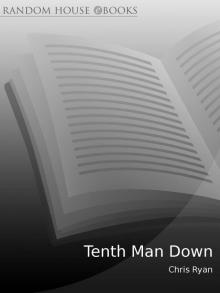 Tenth Man Down
Tenth Man Down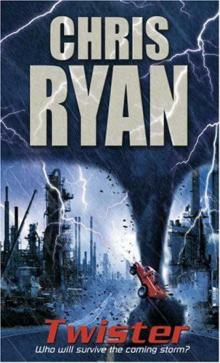 Twister cr-5
Twister cr-5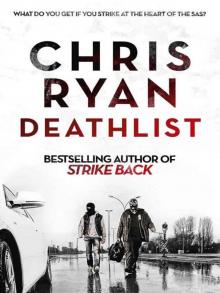 Deathlist
Deathlist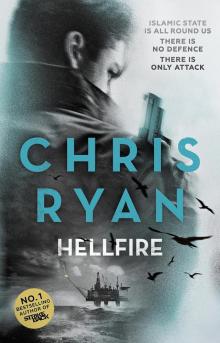 Hellfire
Hellfire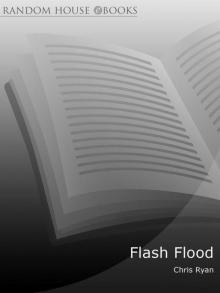 Flash Flood
Flash Flood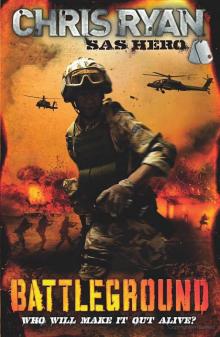 Battleground cr-6
Battleground cr-6 The Increment
The Increment